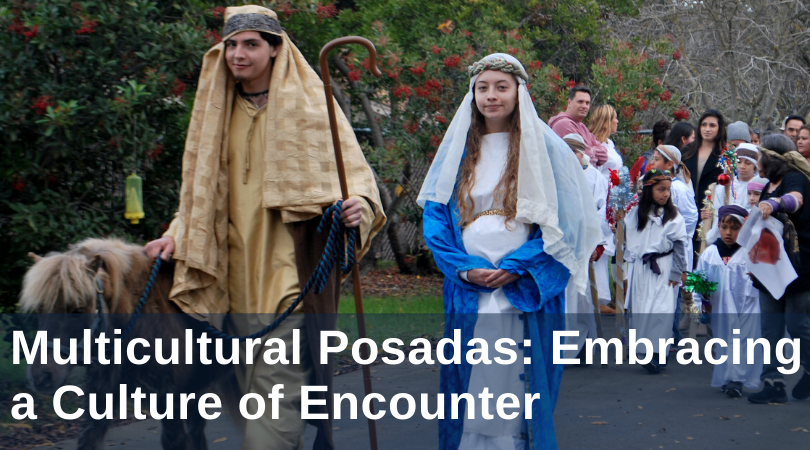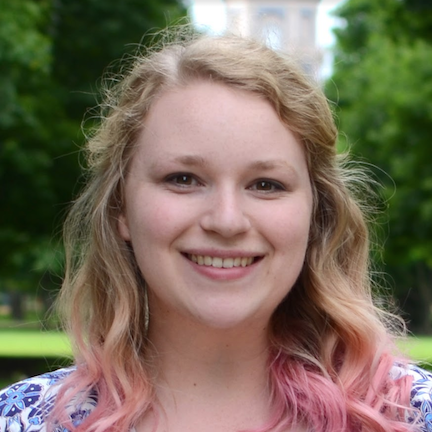
Pope Francis has spoken extensively of a “throwaway culture” in which items, creation, even human beings are deemed unnecessary or inconvenient, then tossed aside. The antidote? A “culture of encounter,” where we do not merely look at others, but we see them; we do not simply hear them, but we listen to them. Every member of the Church is called to minister to the Body of Christ in this way.
Parishes help to create this culture of encounter because of the unique nature of their community. Ideally, parishes are radically hospitable places, welcoming those of different backgrounds, facilitating encounters between distinct communities, and communicating love for people across language barriers. Multicultural ministry requires much more attention than it currently receives, and multicultural parishes are excellent places to work toward encounter.
The parish where I work through the McGrath Institute’s Echo program is home to five main cultural and language groups—English, Spanish, Albanian, Burmese, and Arabic—with individuals from several other groups present as well. As part of my work in Echo, my parish has implemented an annual Advent event that involves all five groups, a “Multicultural Posadas.” Now practiced in several parts of Latin America and the United States, Las Posadas is a Christmas tradition that originated in Mexico. In Las Posadas, members of a community dramatize the story of Mary and Joseph searching for lodging in Bethlehem, going from house to house and being denied entry at each one, until they finally reach their designated endpoint and are permitted to enter.
Our parish created our own spin on this event, with the help and support of each of our five main language groups. Our Posadas pilgrims traveled around our parish campus, knocking on different doors including the school, convent, parish office, and parish hall. We were denied entry time and again until, finally, we arrived at the main church and were permitted to enter. Each door belonged to a different cultural group, and each station was prayed in that group’s language. We sang the Ave Maria in each of the five languages while walking, and each community sang one of their traditional Christmas carols at the end. Afterward, we had a reception with food from the different ethnic groups and, of course, a piñata.
While such an event will not work at every parish, the task of encounter is still a call that every parish must respond to. Here are some insights I gained in planning and preparing this event:
- Invite groups to take ownership.
Each cultural group decided how to decorate their door, what to wear, what to sing, and what food to share. Giving ownership empowers people to share their culture with the larger community. - Allow others to help you.
It should go without saying, but ministers cannot be experts on every culture in their parish community! Do not be afraid to ask for input, especially when dealing with traditions not your own. - Ask for help with specific tasks.
Invitations can be overwhelming if they are vague, especially for individuals who have not helped with parish events before. Learn the specific gifts people have to offer, and invite them to use those gifts. - Invite groups to enter into each other’s narratives for a rich communal experience.
Our Albanian community shared that they have fewer Christmas traditions and decorations due to their country’s painful history of communism. The Hispanic community described growing up with the Posadas. The Burmese community related their experience as new refugees in the United States. Members of the Arabic community who had lived in the Holy Land offered firsthand perspectives on places from the biblical narrative. - When everyone shares something, the whole community receives so much more.
This is what true inculturation means. The various expressions of faith at our event all enriched each other far more than we could have imagined, providing a beautiful glimpse of the Holy Spirit’s work in the Church. - You will mess up, and that is okay.
You might accidentally overlook a community, you might offend someone unintentionally, or you might execute something in a way that members of a community disagree with. Practice humility, be the first to apologize, and move forward in good relationships.
Las Posadas invites us to consider how we can better welcome Christ into our lives, our hearts, and our homes. It reminds us that we are all fellow pilgrims journeying toward fuller communion with God and each other. This Advent season, let us pray for the grace to truly encounter one another in all our beautiful differences, recognizing that all have a home in God’s love.
Featured Image: Anza Trail NPS: CC-BY-NC-2.0.


